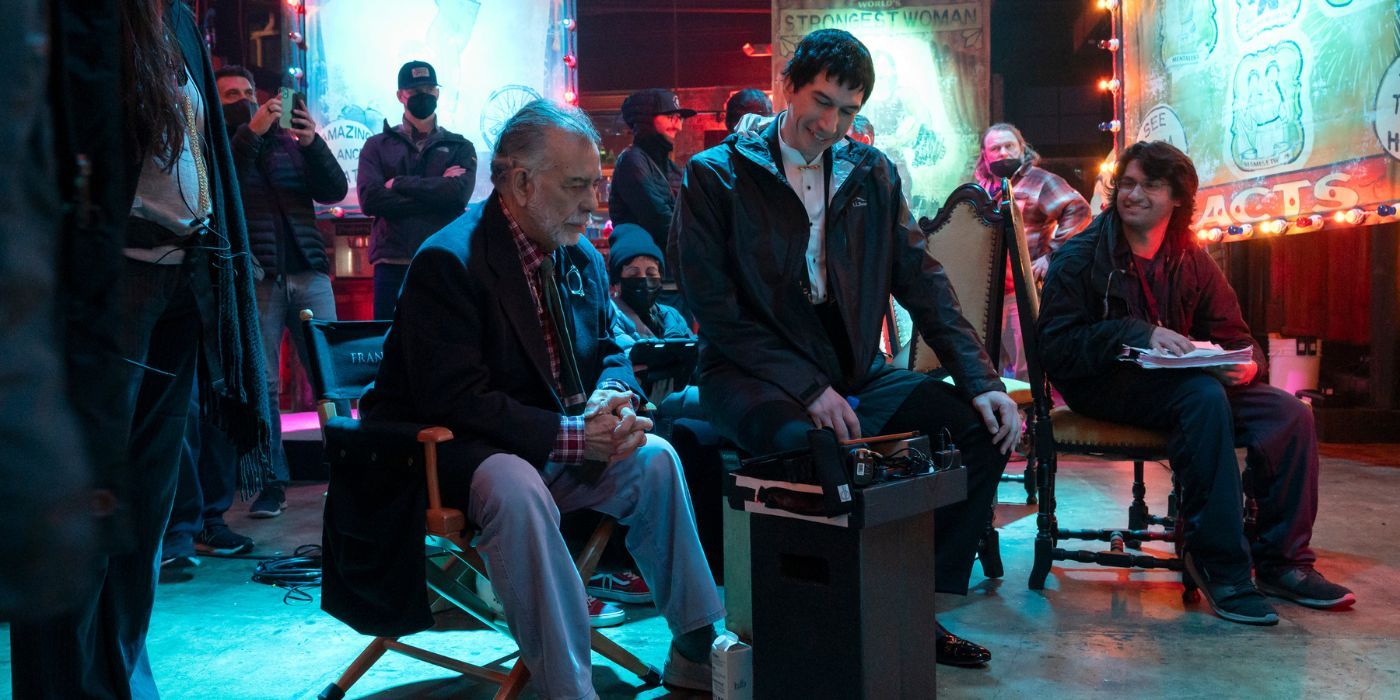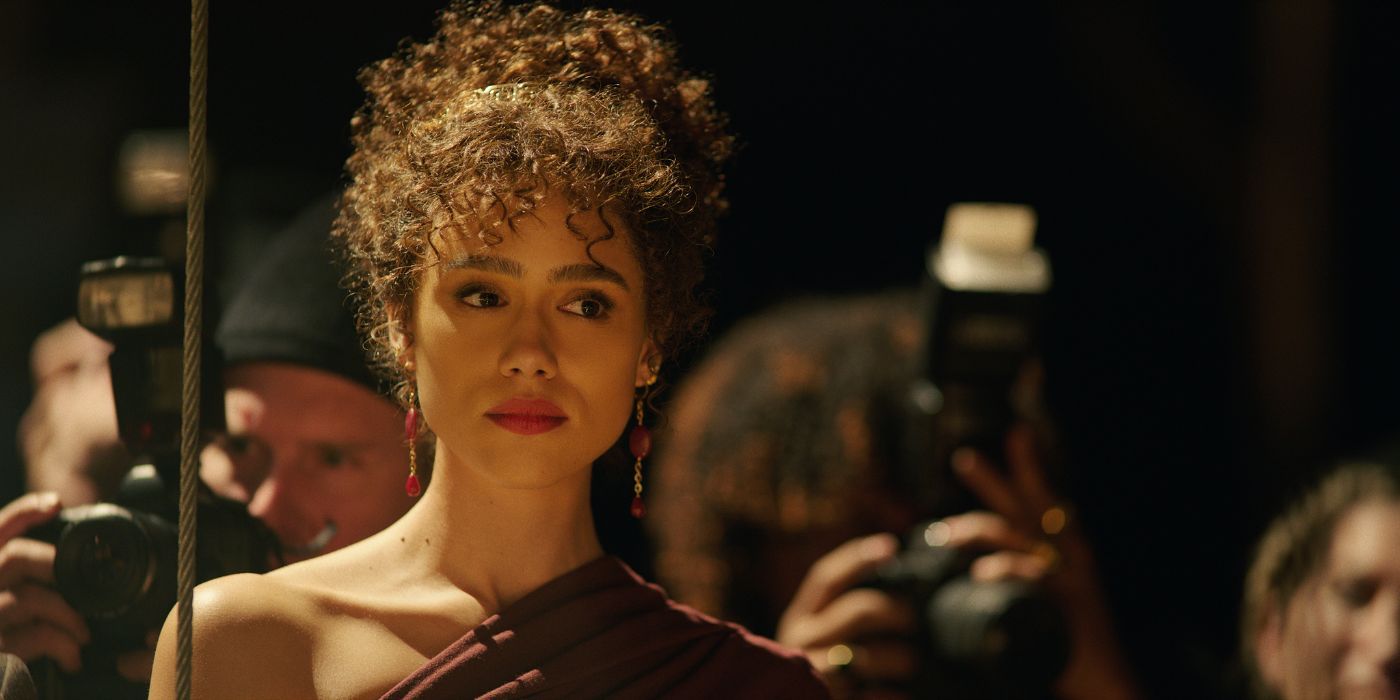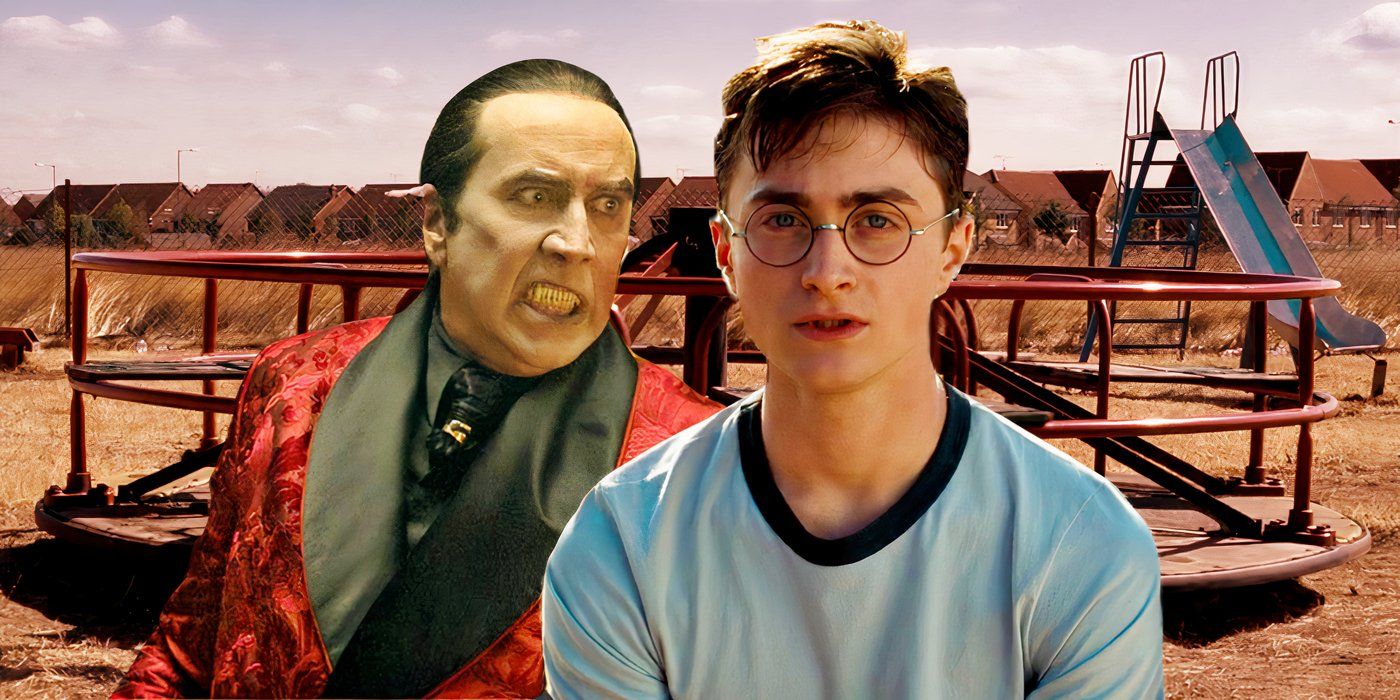Giancarlo Esposito and Nathalie Emmanuel Give Their Honest Opinion on Francis Ford Coppola’s ‘Megalopolis’

The Big Picture
- Collider’s Steve Weintraub speaks with Giancarlo Esposito and Nathalie Emmanuel for Francis Ford Coppola’s
Megalopolis
. -
Megalopolis
presents a decaying metropolis with conflicting visions to rebuild or maintain, shaping the characters’ fates. - Esposito and Emmanuel discuss how Coppola encourages play and spontaneity on set, the themes of the film, and more.
From his masterful performances as the terrifying Gustavo Fring in Breaking Bad and the incomparable Moff Gideon from The Mandalorian, to his big-screen turns in two of this year’s blockbuster horrors, Abigail and MaXXXine, Giancarlo Esposito is always an unforgettable on-screen presence. Along with her memorable roles in Game of Thrones and The Fast Franchise, Nathalie Emmanuelrecently chatted with Collider about her brand new action-packed Peacock original The Killer by celebrated action director John Woo. Together, they star as a conflicted father and daughter in Francis Ford Coppola‘s bold feature, Megalopolis.
Megalopolis is a brand-new cinematic vision showing a decaying metropolis called New Rome. Within, idealist architect Cesar (Adam Driver) is granted license to demolish and rebuild the city. His nemesis, Mayor Cicero (Esposito), remains committed to keeping New Rome as it is. Torn between them is Julia (Emmanuel), Franklyn’s socialite daughter and Cesar’s love interest, who, through the tumult, continues her search for life’s meaning. The movie also features Aubrey Plaza, Laurence Fishburne, Jon Voight, and more.
Ahead of the film’s release, Emmanuel and Esposito sat down with Collider’s Steve Weintraub to discuss Coppola’s incredible storytelling skills, the challenging, moving, and optimistic themes the film presents, and how, said and told, Megalopolis truly is a spectacle film.
Director Francis Ford Coppola Encourages Play and Spontaneity
“With Francis, you don’t know what to expect — and it’s a great thing.”
COLLIDER: I’m gonna say hello from the Toronto Film Festival. I’m a few blocks away from you guys.
GIANCARLO ESPOSITO: I thought you were in Brooklyn! Now I recognize it completely.
Congrats on this movie. I love the way Francis has pushed forward with a bold, innovative piece of cinema and art. I’m so happy he made this. When I’ve spoken to other people about this film, they’ve all spoken about how it was such a unique way of working. For each of you, can you talk about what it was actually like making this movie? How it might have been unique compared to your other experiences?
ESPOSITO: I think you’re out of your comfort zone with Francis. I think he directs in a way that’s from his heart, but also equivalent and equal to his intellect. He allows play. There’s a looseness that comes about our shooting day before we’re even shooting the dialogue. He’s encouraging. He’s not pressuring. It’s a very different way of working than I think many of us are used to. For me, being in an awkward and uncomfortable place — as many of us might think — is nerve-wracking or not good. That’s a great place to be because it allows your sensitivity to be at your touch. It allows you to be present, and it allows you to be open. Francis has always been a director — this is my second time working with him — who works in a very different way. To be accepting of that is the key. How does that affect you? Do you fit with all these great actors? Do you fit with the young and the old? Do you fit in this place that allows you to play? Sometimes we want in life just to be doing the same thing over and over again, because we know what to expect. With Francis, you don’t know what to expect — and it’s a great thing.
NATHALIE EMMANUEL: I think the experience was like nothing I’ve ever experienced before or will again. I feel like each day we showed up, we didn’t know what was going to happen or how the day was going to unfold. Like Giancarlo said, there’s so much play and so much space to discover. I think that’s part of Francis’ process. It’s really in the movie as well. I feel like when I watched it, I saw so many of those things that weren’t necessarily written down in the script. It came out of the play, it came out of the spontaneity. It was an incredibly exciting way to work because you just didn’t know how the day was gonna pan out.
‘Megalopolis’ Is A Call To Action
I just spoke to Francis and I spoke specifically about the editing of the movie because he spent a long time in the editing room trying to figure out what the movie was. One of the things he said is he leaned into some more of the uniqueness of the film. I don’t want to use the term bizarre, but he went for certain choices. For both of you, what was it actually like watching the finished film for the first time? Because you really don’t know, with a film like this, how it’s gonna be until you see it.
ESPOSITO: For me? I was very open when I went to Cannes to get beyond the excitement of being in that venue with the master filmmaker, a wonderful cast, and great energy. Then you sit and watch. I felt like I was in a spectacle movie that had such a deeply rooted story at the base of it. I felt like there was a lot going on, but I was traveling with it in real time and felt a part of it. Then, by the end of the movie, I was really quite moved. I remember reaching over Adam [Driver] to Francis and holding his hand with tears in my eyes because you really get it — a film that has all these elements in it, that’s so very dense in its script and has so many visual elements as a part of it.
You’d think that would be indulgent from a filmmaker, but underneath it, Francis is this incredible storyteller. Underneath all that, it hit me like a ton of bricks that there is a future. We have a future, and we have a guy who’s made such a beautiful movie to compel us forward in a very open and new way. Not only in our minds but also in our hearts and also through our eyes.
EMMANUEL: When I watched the film, there were no words. I think when the movie finished, I was just like– [wide-eyed]. There was so much to process. For days afterward, I was thinking about things and going, “Wow, that piece. That was really interesting, and that was really challenging, and that was really moving, and that was really optimistic.” I felt like the movie was a call to action. I felt really proud of the film. When I think about the process, the many months we were there, and rehearsals, and all the things, all of the brilliant talents that poured into this film and Francis’ vision, I am so proud of it. I was like, “I can’t believe what I just watched.” Francis is a rebel, man. He’s like, “I don’t care what everyone else is doing. This is what I’m doing. This is my movie.” He did it, and I was like, “Okay! Wow, just wow.”
I am so happy he made this because we need more artists like this pushing cinema forward and taking risks and making art anyway. Thank you so much for giving me your time and have a fantastic TIFF.
ESPOSITO: Thank you so much for your clarity and honesty. You’re there, baby. [Laughs]
Megalopolis is in theaters and IMAX now.
Buy Tickets
Source link




